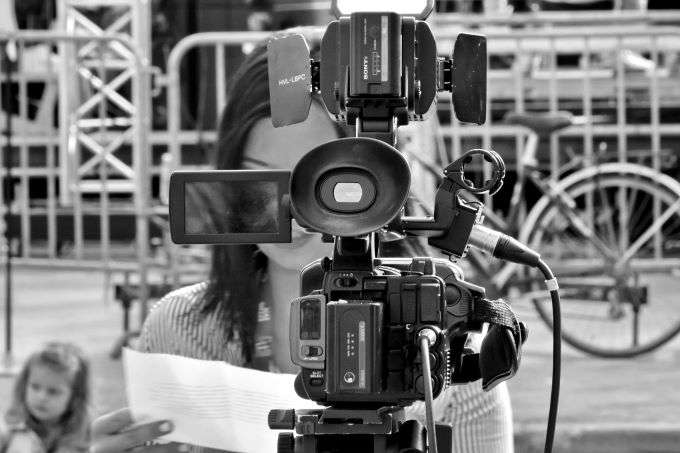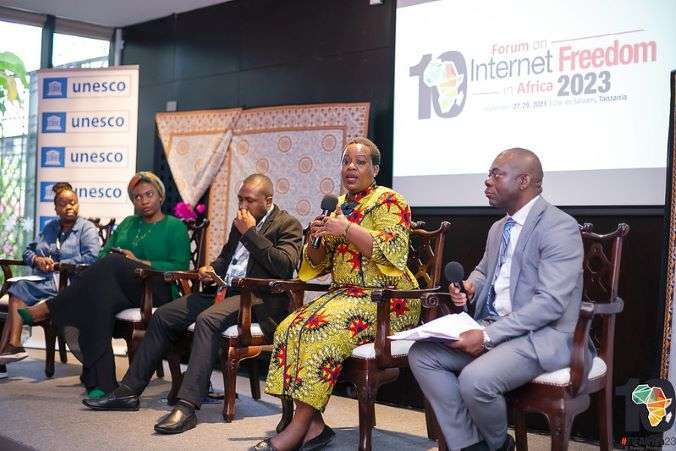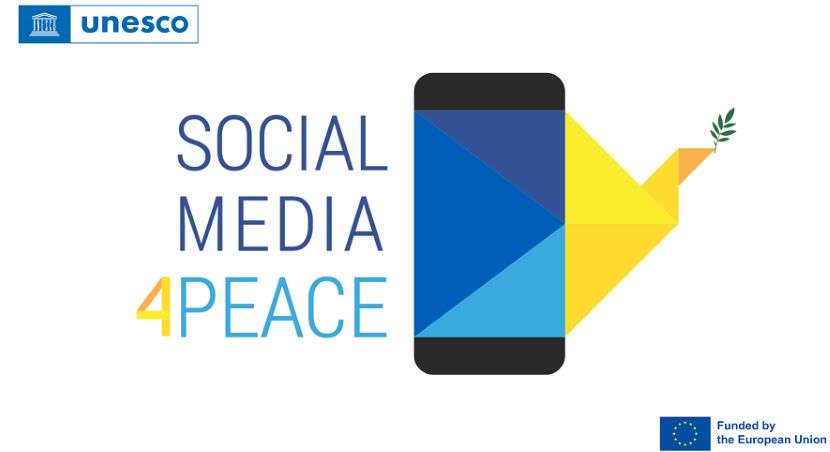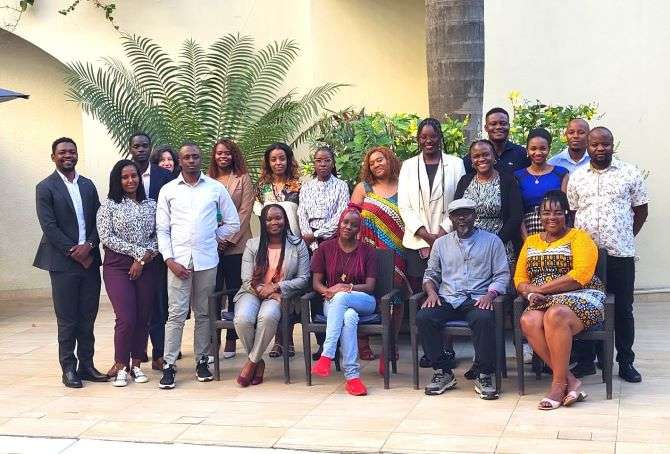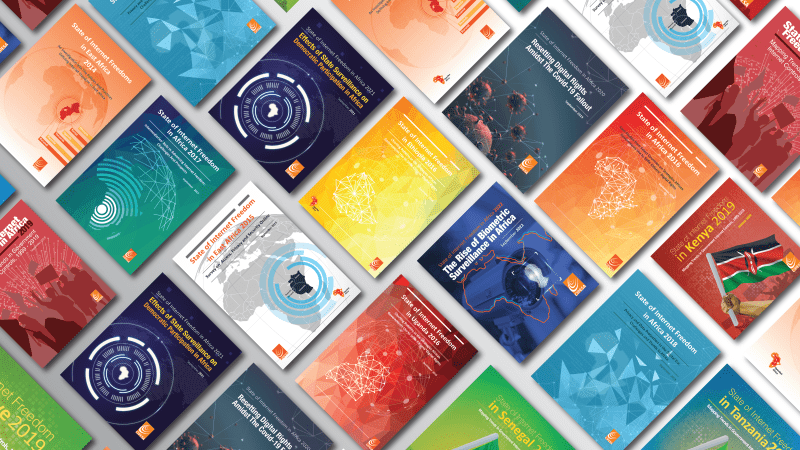By Juliet Nanfuka |
November 2 marked the International Day to End Impunity for Crimes against Journalists, a United Nations (UN) recognised day observed annually that serves to draw attention to the level of impunity for crimes against journalists. While impunity for crimes against journalists is high and is a global reality, there is a concerning and continued gender-biased undercurrent that shapes and informs the media landscape in many African countries. As such, some cases of crimes especially against women journalists go unrecognised. The safety of African women journalists is therefore an urgent concern and a key cornerstone of press freedom..
As such, the Collaboration on International ICT Policy in East and Southern Africa (CIPESA) in partnership with the United Nations Educational, Scientific and Cultural Organization (UNESCO) has embarked on a multi-country project centred on implementing some of the recommendations of the 2022 report on the State of Media Freedom and Safety of Journalists in Africa.
According to the report, while both men and women journalists in Africa are likely to experience trolling, more women have been sexually harassed and threatened. Further, online attacks against women journalists appear to be increasing exponentially and have also moved offline – with potentially deadly consequences. Yet women journalists who experience abuse online rarely seek justice and often struggle to have their complaints taken seriously and properly investigated.
Illustrative cases include some from Kenya, where in 2018, several women in the media were the target of smear campaigns on social media platforms, through hashtags, photos, and video-edited graphics depicting nude characters. In 2019, a female journalist’s phone number was publicly shared on Twitter by Julius Malema, the leader of the Economic Freedom Fighters (EFF) political party in South Africa, which resulted in “an avalanche of racialised and sexist abuse, including rape and death threats.” Although the EFF was sued, and the court found that the party had violated the electoral code by failing to “instruct and take reasonable steps to ensure that their supporters do not harass, intimidate, threaten or abuse journalists and especially women”, the case is a microcosm of what women journalists across the continent experience particularly when reporting on politics.
More broadly, the media landscape in Africa has become rife with arbitrary censorship, especially on the internet, arrests of journalists on the grounds of combating cybercrime, fake news or terrorism, and acts of violence against media personnel that usually go completely unpunished. Although media plurality has improved dramatically on the continent, the gender dynamics remain ever-present, such as few women holding executive positions in media companies. Meanwhile, the increased reliance on technology has seen the affronts experienced by female journalists transferred online with a bigger impact on the profession, which is forcing some out entirely, silencing others from reporting on critical concerns or encouraging a culture of self-censorship.
Accordingly, the CIPESA/UNESCO collaboration seeks to create avenues of engagement on these concerns and how they undermine the practice of journalism by women. These will be pursued by a series of inperson meetings revolving around recommendations that emerged from the documentation of media freedom and journalist’s safety in Africa.
This work builds on earlier interventions by CIPESA including the 2020 Women At Web Uganda (#WomenAtWebUg) Masterclass and Reporting Grant which served to increase the visibility of the dynamics faced by Ugandan women online and improve balance, quality and regularity of reporting. Through the Africa Digital Rights Fund (ADRF), CIPESA supported the Women In Media Initiative Somalia (WIMISOM) in building the digital security skills and knowledge of women journalists (print, broadcast and online) and women-led media organisations in Puntland, Somalia and Somaliland as a means of combating threats against female journalists and their sources.
In 2022, CIPESA joined the Uganda Media Sector Working Group (UMSWG) in the commemoration of World Press Freedom Day where the theme “Journalism Under Digital Siege” was the focus of deliberation. Discussion at the UMSWF meeting resonated with insights that emerged from research in Namibia. In 2022, the ADRF provided support to the Internet Society – Namibia Chapter to develop a country situational assessment on the state of online violence against girls and women in Namibia. The assessment reaffirmed the experiences of Namibian journalists as similar to those worldwide. It noted that, “where online attacks against women journalists have political motives, where political
actors, extremist networks and partisan media are identified as instigators and amplifiers of online violence against women journalists.”
In May 2023, in recognition of International Women’s Day (IWD), CIPESA hosted a regional webinar titled “Tech4Equality: Advocating for Gender Inclusive ICT Policy and governance” that assembled gender experts from a host of countries including Namibia, Tanzania, Uganda, and Zambia. This was complemented by efforts in Cameroon where CIPESA alongside Civic Watch and DefyHateNow engaged women journalists at a workshop on the opportunities for embracing technology while also being alive to the challenges inherent to journalism in the digital space.
Meanwhile, gender inequalities, bias and the media have been key points of deliberation at the annual Forum on Internet Freedom in Africa (FIFAfrica) which this year marked a decade. It entailed a workshop in which partners including the National Democratic Institute (NDI), Women of Uganda Network (WOUGNET), Pollicy, AfricTivistes, and Internews presented insights from their work and recommended multi-stakeholder interventions to address online violence against women.
As more women in the media operate in environments rifled with gender-based challenges and threats that stem from deeply ingrained societal norms, collaborative efforts are required for more impactful responses to be reached. This is fundamental as the role of women journalists in shaping narratives and advancing social progress in Africa should be prioritised.

